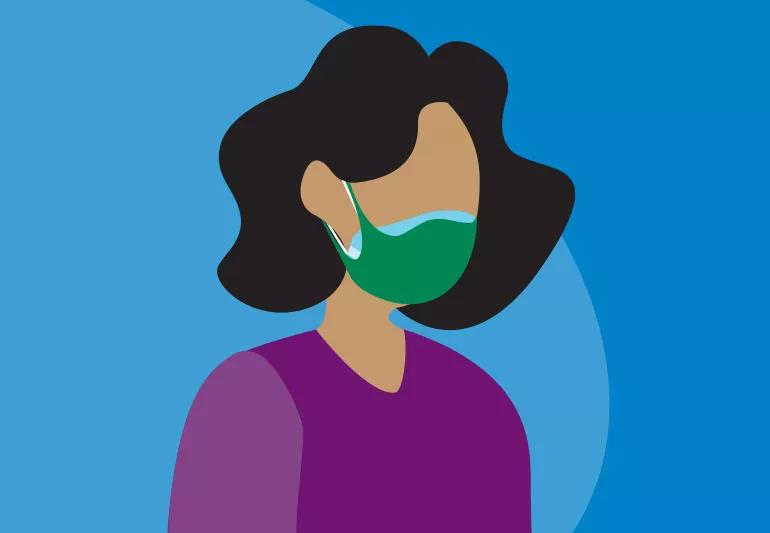The short answer from an infectious disease specialist

Image content: This image is available to view online.
View image online (https://assets.clevelandclinic.org/transform/0469de48-2a03-4bbd-bc0b-1b247842e876/doubleMask-1241644647-770x533-1_jpg)
woman wearing double masks during pandemic
A: The Centers for Disease Control and Prevention recommends universal mask wearing as an important way to slow the spread of COVID-19.
Advertisement
Cleveland Clinic is a non-profit academic medical center. Advertising on our site helps support our mission. We do not endorse non-Cleveland Clinic products or services. Policy
At this time, the CDC recommends wearing a face mask with two to three layers that fits snugly over your face. The CDC recently published new research suggesting that layering a cloth mask over a surgical mask (double masking) when a mask only has one layer, or knotting and tucking a single mask, may improve the fit of masks and provide additional protection from potentially infectious particles.
However, if your mask already has multiple layers and fits tightly, it’s not necessary to double mask.
As the COVID-19 pandemic evolves, we’re continuing to closely monitor the latest scientific evidence and CDC recommendations regarding face masks.
Studies from the CDC have shown that face masks effectively limit spread of the virus that causes COVID-19, protecting the wearer and those around them. To slow the spread of the virus, it’s important that everyone in the community wear a face mask. It’s also essential to social distance, avoid gatherings and wash your hands frequently. We also recommend taking the COVID-19 vaccine when it’s available to you.
— Infectious disease specialist Steven Gordon, MD
Advertisement

Sign up for our Health Essentials emails for expert guidance on nutrition, fitness, sleep, skin care and more.
Learn more about our editorial process.
Advertisement
A pediatric psychologist weighs in on continued masking for kids
What to know about running in a face mask during the coronavirus pandemic
Proper etiquette for asking others to comply with mask rules
Learn how one simple action can help keep the whole family safe
Talking points from a healthcare provider
The short answer from an infectious disease specialist
Make it easier to hear and be heard
The short answer from an infectious disease specialist
Type 2 diabetes isn’t inevitable with these dietary changes
Applying a hot or cold compress can help with pain
Pump up your iron intake with foods like tuna, tofu and turkey